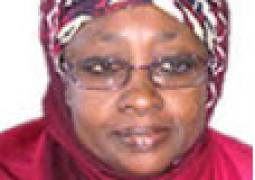A one-day validation workshop on the Gambia National Agricultural Investment Plan GNAIP was last week held at Kairaba Beach Hotel in Kololi.
Speaking at the occasion, the Permanent Secretary at the Ministry of Agriculture, Dr. Amadou Sowe said "GNAIP designs considerations on putting national food security and nutrition at the heart of its programme, setting priorities of GNAIP interventions to better sequence and optimise impact of investment, building on and scaling up existing programmes and activities, working within existing institutions at central and decentralised levels to build capacity, sustainability and national ownership, ensuring alignment and co-ordination between programmes to ensure synergies and make the best use of the resources and emphasising inclusion of women youth and vulnerable groups in designs of programmes/activities."
PS Sowe said GNAIP's programmes include improvement of agricultural land and water management, national food and nutrition security, improved management of other shared resources, sustainable farm development, development of agricultural chains and market promotion and GNAIP co-ordination, monitoring and evaluation.
He said the main objective of agricultural land and water management is to increase food security, income-generation capacity and nutritional status of the farmer-beneficiaries, especially the women and youth through the use of appropriately sustainable water management practices for the cultivation of 25,000 hectares of land.
PS Sowe said the objective is agricultural transformation of smallholder farmers from traditional subsistence-based to a more market-oriented commercial sector through support to value chain development.
National food and nutritional security objective, he added, includes national food security, with special attention on targeting the most vulnerable groups and households in rural and urban communities.
According to him, sustainable farm development objective is to increase and sustain agricultural production and productivity growth by introducing agricultural practices through people-centered learning processes that enhance and conserve local natural resources.




